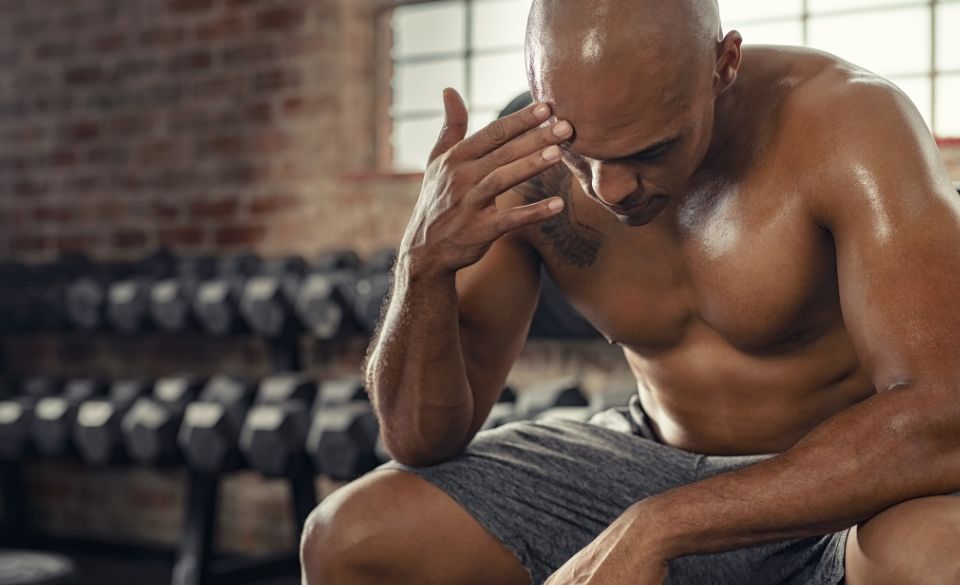
Why After Workout I Feel Sleepy
Page Contents
Have you ever experienced that post-workout sensation where, instead of feeling energized and pumped up, you suddenly find yourself yawning and yearning for a cozy nap? Don’t worry; you’re not alone! Many people wonder why they feel sleepy after a workout, and in this blog post, we’ll delve into this fascinating phenomenon. We’ll explore the possible reasons behind that post-exercise drowsiness and discuss what you can do to tackle it head-on. So, let’s lace up our sneakers and dive into the intriguing world of post-workout sleepiness!
The Science Behind Feeling Sleepy After a Workout
1. Hormonal Shifts: The Sleep-Inducing Melatonin
One of the primary reasons behind feeling sleepy after a workout is the hormonal response triggered by physical activity. Exercise can lead to an increase in the production of the hormone melatonin. Melatonin is often associated with promoting sleep and regulating our body’s internal clock. Studies have shown that moderate-intensity aerobic exercise, such as running or cycling, can enhance melatonin levels, especially when performed in the evening. This hormonal shift might be why you feel the urge to hit the pillow after a strenuous workout.
2. Energy Depletion: The Body’s Recharge
During a workout, your body expends a significant amount of energy, tapping into its glycogen stores for fuel. After exercise, your body works to replenish these energy reserves, and this process can leave you feeling a bit drained and drowsy. Additionally, your muscles may release compounds called cytokines during exercise, which also play a role in promoting sleepiness. So, that post-workout fatigue might just be your body’s way of signaling the need for some rest and recovery.
3. Body Temperature Regulation: The Cooling Effect
Physical activity causes your body temperature to rise as you sweat to cool down. However, after your workout, your body starts to cool back down, and this drop in body temperature can trigger feelings of drowsiness. It’s similar to how taking a warm bath can make you feel relaxed and sleepy afterward. This temperature shift can signal to your body that it’s time to wind down and rest.
4. Mental Relaxation: Mind and Body Connection
Engaging in exercise can act as a natural stress reliever and promote relaxation. When you work out, your body releases endorphins, the feel-good chemicals, which can alleviate stress and anxiety. This mental relaxation can transition into a sense of calmness, making you feel more inclined to wind down and rest, especially if you’ve had an intense workout session.
How to Manage Post-Workout Sleepiness
Feeling sleepy after a workout isn’t necessarily a bad thing; it’s your body’s way of telling you that it needs rest and recovery. However, if you find that post-workout drowsiness interferes with your daily activities or disrupts your sleep schedule, there are some strategies you can try to manage it effectively.
1. Time Your Workouts Wisely: Consider the Timing
If you find yourself feeling too sleepy after evening workouts, try scheduling your exercise sessions earlier in the day. This way, you can still reap the benefits of physical activity without affecting your sleep patterns. Alternatively, if your schedule only allows for evening workouts, consider engaging in less intense activities like yoga or stretching before bedtime to promote relaxation instead of a full-blown high-intensity workout.
2. Hydration and Nutrition: Fuel Your Body
Proper hydration and nutrition play a significant role in how your body responds to exercise. Make sure to stay hydrated throughout the day and eat balanced meals that provide your body with the necessary nutrients to sustain energy levels. Snacking on healthy options like fruits, nuts, or yogurt before or after your workout can help maintain your blood sugar levels and reduce feelings of fatigue.
3. Mindful Cool-Down: Ease into Relaxation
After a workout, take some time to cool down and engage in a mindful cool-down routine. Stretching and deep breathing exercises can help lower your heart rate, promote relaxation, and ease your body into a state of restfulness.
4. Power Nap: Embrace the Catnap
If you find that you’re still feeling excessively sleepy after your workout, a short power nap might be just what you need. Keep it brief, though – a 20-30 minute nap can be enough to recharge your batteries without interfering with your nighttime sleep.
The Role of Sleep in Fitness
Now that we’ve explored why you might feel sleepy after a workout let’s dive deeper into the importance of sleep in your overall fitness journey. Sleep is a critical component of your well-being, and it directly impacts your athletic performance and recovery.
1. Muscle Repair and Growth: Rest for Success
During sleep, your body goes into repair mode, working hard to heal and rebuild the tissues and muscles that were stressed during your workout. This is when your muscles grow and become stronger. Without adequate sleep, your body won’t have enough time to undergo these essential repairs, which can hinder your progress in reaching your fitness goals.
2. Hormonal Balance: The Sleep-Exercise Connection
As mentioned earlier, hormonal changes play a significant role in post-workout sleepiness. Quality sleep is essential for maintaining a healthy balance of hormones, including growth hormone and cortisol. Growth hormone helps with muscle repair and recovery, while cortisol is responsible for managing stress. Proper sleep ensures these hormones are regulated, promoting overall well-being and optimal workout performance.
3. Mental Focus and Motivation: Sharpen Your Mind
Adequate sleep is essential for mental clarity, focus, and motivation. When you’re well-rested, you’re more likely to stay committed to your fitness routine and make healthier choices throughout the day. On the other hand, sleep deprivation can lead to decreased cognitive function, making it harder to stay on track with your fitness goals.
4. Injury Prevention: Rest for Resilience
Insufficient sleep can increase the risk of injuries during workouts. When you’re fatigued, your coordination, balance, and reaction times are compromised, making you more susceptible to accidents and strains. Prioritizing sleep allows your body to recover fully, reducing the likelihood of workout-related injuries.
Tips for Improving Sleep Quality
If you’re struggling with post-workout sleepiness or have trouble falling asleep in general, consider incorporating these sleep-enhancing habits into your daily routine:
1. Establish a Consistent Sleep Schedule: Stick to a Routine
Go to bed and wake up at the same time every day, even on weekends. Consistency helps regulate your body’s internal clock, making it easier to fall asleep and wake up naturally.
2. Create a Relaxing Bedtime Routine: Unwind Before Bed
Create a calming pre-sleep routine to signal to your body that it’s time to wind down. This could include activities such as reading a book, practicing gentle stretches, or meditating. Avoid stimulating activities or screens right before bedtime, as they can interfere with your ability to fall asleep.
3. Limit Caffeine and Alcohol Intake: Know Your Limits
Caffeine and alcohol can disrupt your sleep patterns, so be mindful of your consumption, especially in the evening. Opt for herbal teas or warm milk instead, which can have a soothing effect and promote relaxation.
4. Create a Sleep-Conducive Environment: Make Your Bed a Haven
Ensure your sleeping environment is conducive to rest. Keep your bedroom cool, dark, and quiet, and invest in a comfortable mattress and pillows that support your body during sleep.
5. Manage Stress: Find Your Zen
Stress and anxiety can significantly impact your ability to fall asleep. Find healthy ways to manage stress, such as practicing yoga, deep breathing, or journaling before bedtime.
Embrace the Synergy Between Exercise and Sleep
Rather than being frustrated by post-workout sleepiness, view it as an opportunity to embrace the natural connection between exercise and sleep. By understanding your body’s cues and prioritizing quality sleep, you can enhance your fitness journey and achieve your goals more effectively.
Remember, sleep is not just a passive activity; it’s an active and essential part of your overall wellness. So, put your workout gear on, give it your all during those intense sessions, and then let yourself bask in the joy of post-workout sleepiness, knowing that your body is working hard to become stronger, fitter, and healthier with each peaceful slumber.




